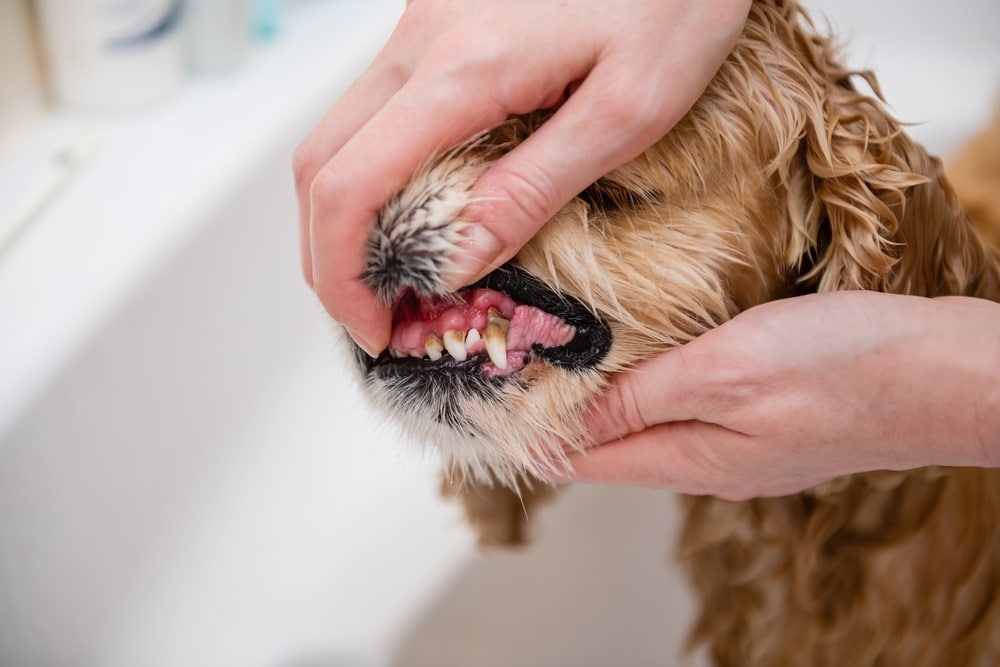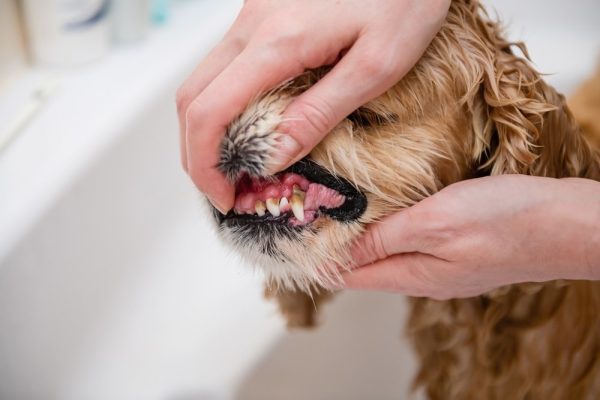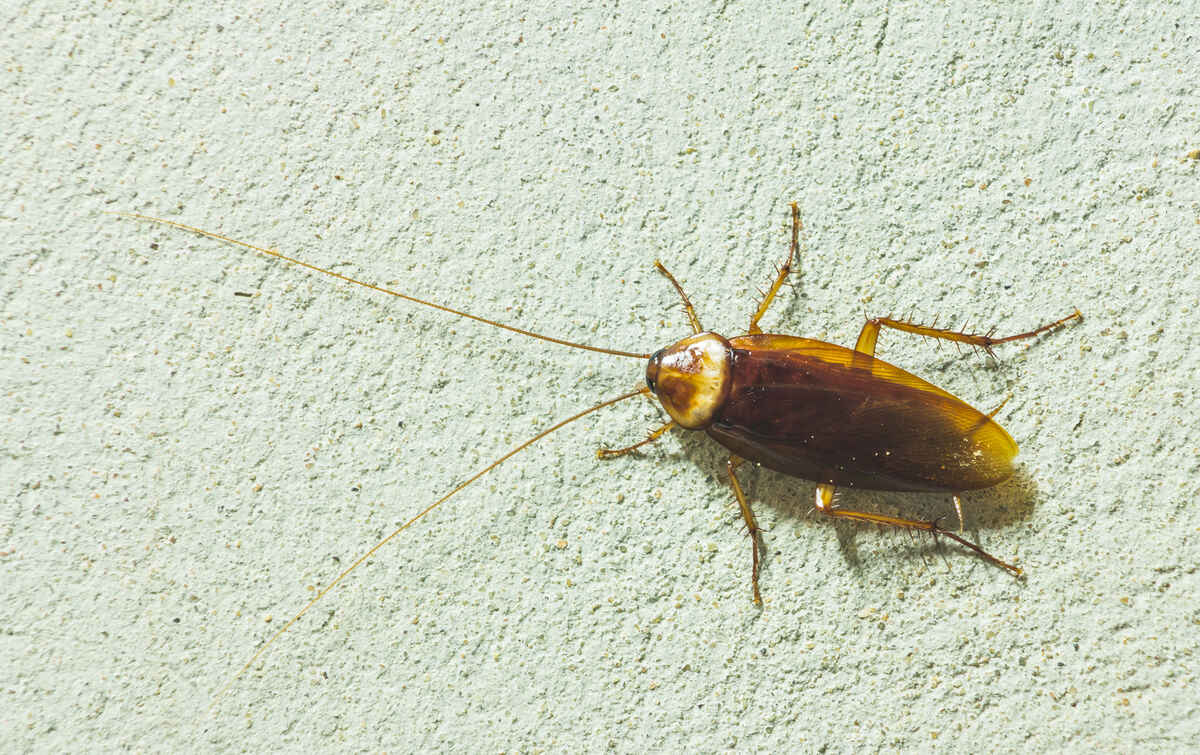Click to Skip Ahead
You probably like your dog having pearly whites just as much as you want them for yourself, as it’s an apparent sign of good health in canines and humans. However, domestication has affected dogs’ dental hygiene. We give our dogs prepared foods without the bones and other hard stuff that would help keep their teeth clean, and only 7% of dog owners report brushing their dogs’ teeth.1 Sometimes, it’s evident with the brown spots on dogs’ teeth. The most common cause of discolored teeth is tartar buildup or dental calculus.
Poor dental health can have far-reaching and unexpected complications. It can increase your pet’s risk of several chronic diseases, including infections affecting your dog’s cardiovascular system, kidneys, and liver. These conditions can be life threatening if left untreated. They can also affect your pet’s quality of life by making eating painful.
The Causes of Brown Teeth
Tartar is created when plaque, a naturally occurring thin layer of bacteria on teeth, hardens and calcifies. Over time it can also turn brown. The problem doesn’t remain only on the teeth, tartar accumulation can cause inflammation and an infection that can lead to gum disease, which brings further complications.
Besides dental disease, other causes of brown teeth in dogs are medications, like tetracycline and chlorhexidine that can discolor your pet’s teeth without the worry of dental disease. Chewing on things can also lead to discoloration. As strong as it is, tooth enamel isn’t infallible and it can wear down, creating brown spots.
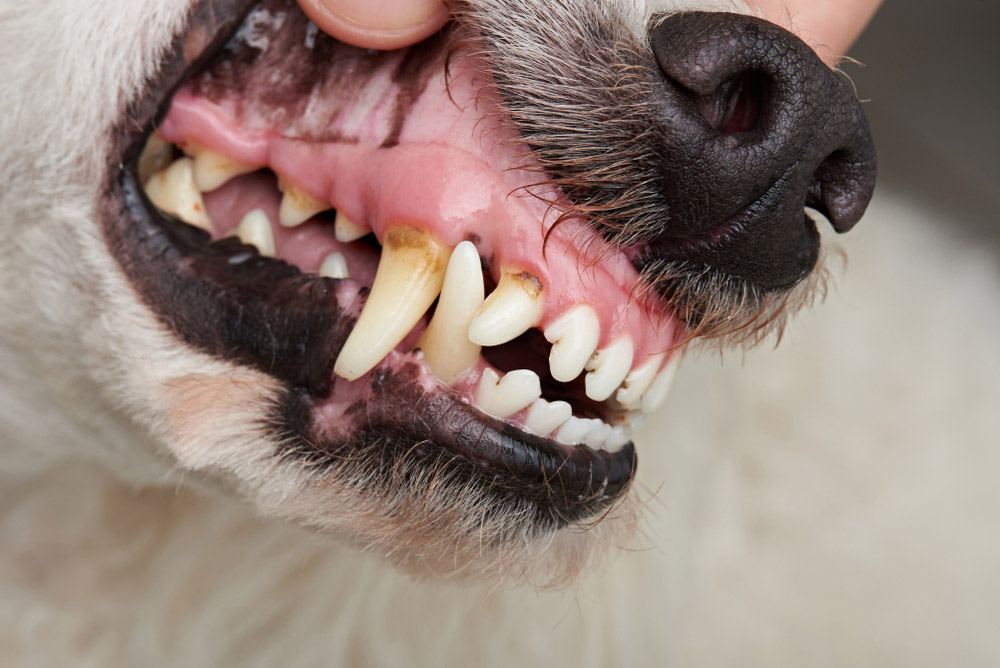
Genetics at Work
Genetics may influence your pup’s chances of discolored teeth. For example, some breeds, like Italian Greyhounds, are prone to this characteristic, an issue known as amelogenesis imperfecta. It’s not a sign of disease but simply an inherited feature, albeit an unpleasant one. Genetics also come into play when it comes to your dog’s propensity for dental disease, particularly small breeds. These breeds include:
- Dachshunds
- Chihuahuas
- Pugs
- Collies
- Yorkies
- Boxers
- Shih Tzus
- Labradors
Trauma
Trauma can also cause your dog’s teeth to turn brown. Dogs chewing on rocks or other rigid materials may inadvertently fracture a tooth. The split opens a pathway for bacteria to enter and its associated risks. Dental surgery is often necessary to save the tooth or the tooth may need to be extracted to prevent complications. It’s often a painful condition requiring prompt care.
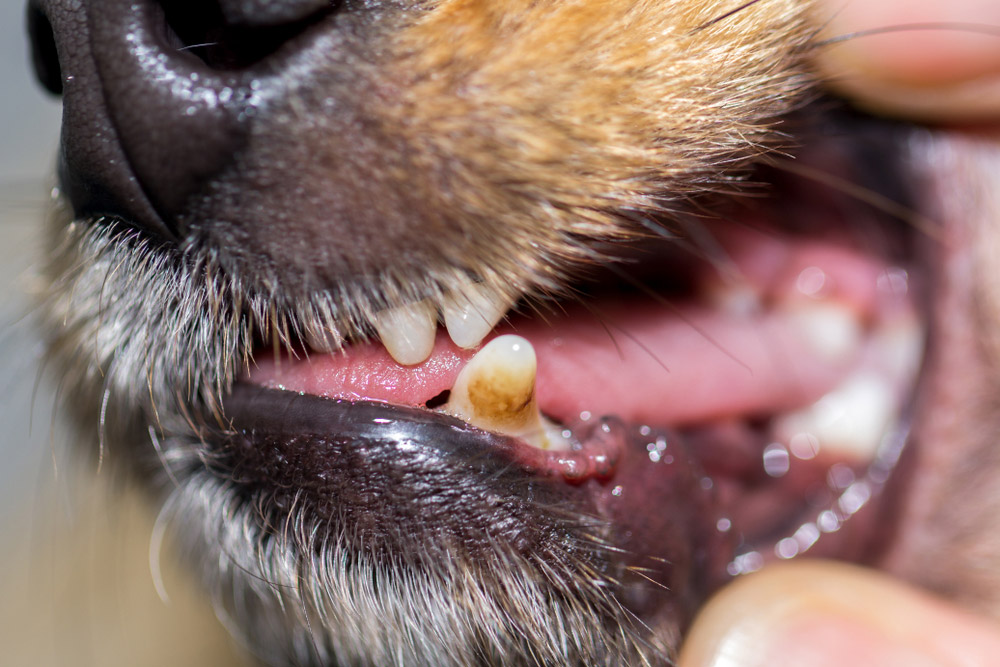
Treatment and Good Dental Hygiene
A dental cleaning is the most effective way to remove the tartar and improve your pup’s oral health. Your vet will sedate your pet to make it as easy as possible. However, it can be expensive because of the sedation. It’s worth noting that the American Veterinary Medical Association (AVMA) sponsors National Pet Dental Health Month every February. Your vet may offer a discount for the procedure during this time.
However, a professional cleaning is a temporary fix because plague and tartar start forming again right after the procedure. That’s where you come into the picture. Good dental hygiene is imperative. The best way to prevent future problems is to brush your pup’s teeth daily. Manufacturers produce toothpaste in pleasing flavors to make your job easier. It’s best to get your dog used to the task while young. Positive reinforcement will make it more manageable for you.
FAQ
Are Dental Treats or Commercial Diets Adequate Substitutes for Brushing My Dog’s Teeth?
Brushing your dog’s teeth is the best way to manage their dental health. However, treats and diets specially formulated for this purpose are better than ignoring the issues. However, not all products are appropriate. We strongly urge you to give your dog items approved by the Veterinary Oral Health Council (VOHC). Some products are available over the counter, whereas others are by prescription only.
Can I Use My Toothpaste on My Dog?
No. Products formulated for people may contain ingredients that are potentially toxic to dogs, including the sweetener xylitol. Ironically, ingestion can cause a dangerous drop in your pet’s blood sugar. It can also damage your pet’s liver, leading to organ failure.
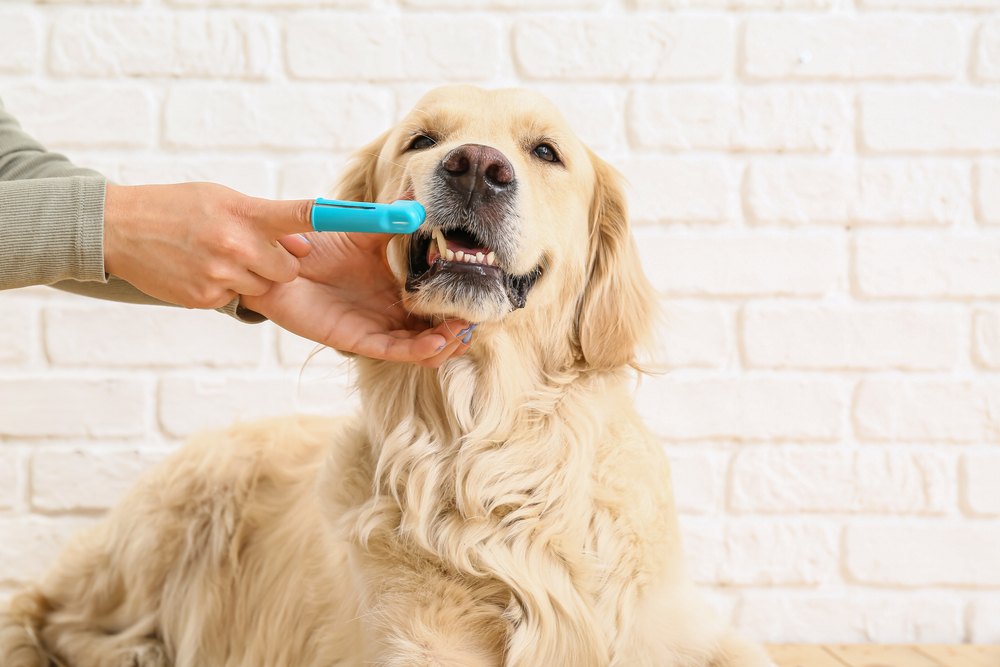
What Are Some Safe Toys for My Dog That Won’t Hurt Their Teeth?
Opt for toys that are well-made but not so rigid that they could damage your pup’s teeth. Some dogs are overzealous when they chew their toys, making items such as marrow bones problematic for some pets.
Final Thoughts
Unsightly brown spots on your dog’s teeth can be a red flag of developing dental disease. It can have devastating health consequences if left untreated. The best way to prevent this condition is by regularly brushing your dog’s teeth. It can keep them strong and healthy just as it does for you. You can prevent plaque and tartar buildup by using approved products to keep your dog’s chompers looking their best.
Featured Image Credit: O_Lypa, Shutterstock

